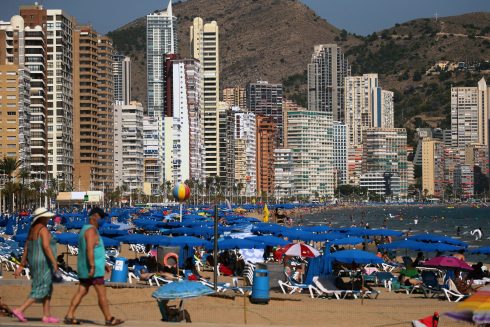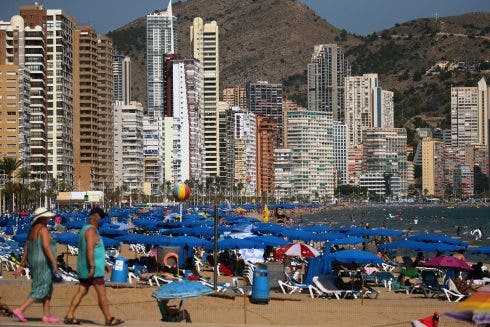Spain’s tourism industry is demanding compensation for the loss of competitiveness once the new European Union’s ETIAS tourist tax comes into effect at the end of the year.
The Olive Press broke the news last week that Spain was ‘waking up to the threat’ to its tourism from the new tax.
It will see Brits and other non-EU visitors pay a €7 surcharge on top of other regional tourist taxes that have been brought in by municipal bosses of popular tourist destinations such as Barcelona.
Now, Francisco Salado, the President of Tourism and Planning Costa del Sol and the Provincial Government of Malaga, has demanded ‘economic compensation’ for when the tax comes into effect, expected to be in November, adding that he was ‘totally against’ this type of tax.
“There should be economic compensation to the municipalities from central authorities that have large budgets,” he said after telling the EU to ‘leave tourism alone!’
“Tourism works very well on its own through the sector and the agents involved, such as Turismo Costa del Sol and Turismo Andaluz,” he said.
“Stop inventing new taxes,” he directed at Brussels.

“Every time we introduce a charge, we do it to improve tourism quality. In the end, this imposition does not add to the quality.
“But what it does do is put a cost on the final product and makes us less competitive.”
Tourism is the economic engine of Malaga and Andalucia, he pointed out, before attacking the EU for continually meddling and local Spanish administrators for not resisting Brussels.
“The EU is always inventing new ways to put taxes on the municipalities. They legislate up there and we, the city councils and the citizens, pay.
“I think it is a lack of loyalty that local administrations are not there when making these decisions.”
He cited as examples the ‘environmental sanitation tax’ and the ‘brown bin’ regulation for disposing of organic waste that will come into effect on December 31, 2023 – both regulations imposed from above by Brussels.
His broadside comes on the heels of complaints from Juan Molas, the president of Spain’s Tourism Board, about the ETIAS.
“We will contact the EU to learn more about this tax and how it will directly impact British tourism, which, with 18 million visitors, was our main source of visitors to Spain in 2019,” he said.
Much of the ETIAS tax is shrouded in mystery, with many details such as how it will be applied and where the money raised will go is unknown.
Its purpose ostensibly is to provide the EU with greater control over who is entering its borders and is designed to track or halt criminals and undesirables.
The tax is likened to the ETSA tourist visa that the United States issues to foreign travellers, and will likely function in the same way.
Brits who are unaware of the new requirement will be able to complete the ETSA form at the airport and most people will receive confirmation in minutes.
But for those whose checks are more complex, there could be waits of up to 96 hours.
walter@theolivepress.es
READ MORE:

